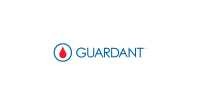AACR, Author Interviews, Cancer Research / 16.07.2020
AACR: Fusion Protein SO-C101 With Pembro in Adult Patients With Advanced/Metastatic Solid Tumors
MedicalResearch.com Interview with:
Radek Spisek MD PhD
Charles University in Prague
MedicalResearch.com: What is the background for this study?
Response: Immune cytokine IL-15 is a highly promising immuno-oncology target that mobilizes the two most important cell types driving anti-cancer immune responses: cytotoxic T cells and natural killer (NK) cells. Stimulating IL-15 receptors on these cells represents a potent and complementary mechanism to existing cancer treatments, such as PD-1 checkpoint inhibitors or monoclonal antibodies.
Sotio is developing an IL-15 superagonist, SO-C101, as a potent immunotherapy for patients with cancer. This study examined SO-C101 in multiple tumor mouse models alone and in combination with PD-1 inhibition. (more…)


